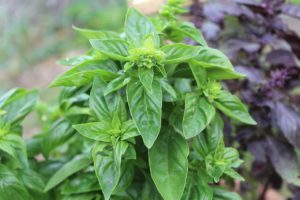
…odour, perfume, scent. One’s olfactory sense isn’t the first that springs to mind when conjuring up a picture of a place or scene, but it can be one of the most powerful. During my recent visit to the Sierra de Grazalema, through the pinsapar forests, I was enjoying their exquisite scent when I remembered that, for many years, pine-scented air freshener was liberally sprayed in the terminals at Heathrow airport, the better to evoke pleasant memories or thoughts of forests and countryside in stressed travellers, in the hope of inducing calm.

That smell is lower in the sensory hierarchy, at least in western civilisation, dates back to Plato, who considered sight and hearing to be the most noble senses, though senses per se were mere distractions.¹ The clues are in our language. Knowledge or truth is ‘seeing’, understanding is ‘to see things clearly’, both positive images, whereas ‘there’s a bad smell about’ something indicates wrongdoing or we ‘smell a rat’. In the Middle Ages smell was regarded as vulgar, the nose often equated with sex and genitalia, and, in the mind-body dualism which sprang from Plato and Aristotle, smell was decidedly of the body, offering nothing to the intellect or higher spirit.

Smell was, and still is, closely aligned with taste as one of the so-called ‘chemical’ senses. These can be the most evocative, exerting power through association, with events good or bad. It is why estate agents recommend that house vendors bake bread or make fresh coffee, to positively influence would-be buyers viewing their property and used car salesmen spray leather essence into cars for sale. Proust knew this and, while folk remember his madeleines, it is often forgotten that he yolks the two senses together. ‘… when nothing subsists of an old past, after the death of people, after the destruction of things, alone, frailer but more enduring, more immaterial, more persistent, more faithful, smell and taste still remain for a long time, like souls, remembering, waiting, hoping, on the ruin of all the rest, bearing without giving way, on their almost impalpable droplet, the immense edifice of memory.’²
There are plenty of examples of the olfactory in literature. There is Patrick Suskind’s 1985 bestseller Perfume, the  story of Grenouille, the man with no odour of his own, who lives through the scent of others, eventually distilling them down, quite literally, to their essences. In Pure, Andrew Miller’s 2011 Costa Book of the Year, the odours of pre-revolutionary Paris, particularly the stench of the exhumation of Les Innocents cemetery in Les Halles, represent both the rottenness of the ancien regime and the broiling energy and passion which will erupt into revolution. There are many, many more examples, but I end this post with Digging by fellow Claphamite Edward Thomas (1878-1917), which is seasonally appropriate.
story of Grenouille, the man with no odour of his own, who lives through the scent of others, eventually distilling them down, quite literally, to their essences. In Pure, Andrew Miller’s 2011 Costa Book of the Year, the odours of pre-revolutionary Paris, particularly the stench of the exhumation of Les Innocents cemetery in Les Halles, represent both the rottenness of the ancien regime and the broiling energy and passion which will erupt into revolution. There are many, many more examples, but I end this post with Digging by fellow Claphamite Edward Thomas (1878-1917), which is seasonally appropriate.
To-day I think
Only with scents, – scents dead leaves yield,
And bracken, and wild carrot’s seed,
And the square mustard field;
Odours that rise
When the spade wounds the root of tree,
Rose, currant, raspberry, or goutweed,
Rhubarb or celery;
The smoke’s smell, too,
Flowing from where a bonfire burns
The dead, the waste, the dangerous,
And all to sweetness turns.
It is enough
To smell, to crumble the dark earth,
While the robin sings over again
Sad songs of Autumn mirth.
If you enjoyed reading this article you might also like articles on language and etymology such as How does a book sound? When is a tea towel not a tea towel? or about books Two Novels Historical
¹The Republic
²Swann’s Way


 RSS – Posts
RSS – Posts